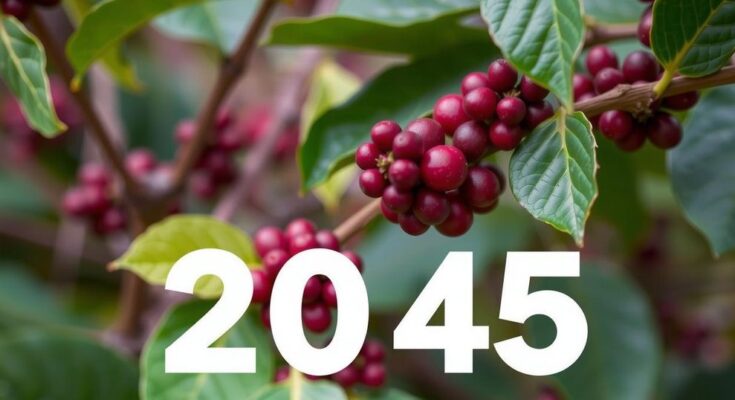Coffee prices are projected to rise further due to climate change-induced droughts, particularly affecting arabica production in Brazil, the world’s largest coffee supplier. The recent price hike to $3.50 a pound marks a significant increase of 70% from the previous year. Wider agricultural impacts may also threaten other crops, creating broader implications for food prices ahead.
The cost of coffee is expected to rise further due to climate change, which has severely impacted coffee production, particularly arabica beans. Recently, the price of these beans reached $3.50 per pound, marking a staggering 70% increase from the previous year, influenced by historical drought conditions in key producing regions such as Brazil. David Ortega, a food economics professor, noted that extensive droughts compromise crop yields, thus driving prices upward.
In Brazil, which is the world’s leading coffee exporter, the combination of drought and environmental stress has resulted in significant shortages, affecting global supply. As arabica beans constitute around 60% of global coffee production, the resulting price surge is expected to reverberate throughout the coffee market. Additionally, the effects of climate change extend beyond coffee, threatening other agricultural products such as hops and wine grapes, which also confront challenges influencing their growth and quality.
The agriculture sector has been grappling with rising food prices for several years, making the anticipated coffee price increases especially concerning for consumers. Despite expectations for stabilization in coffee prices, the realities of climate change and adverse agricultural conditions suggest a trend toward continued increases. The drought affecting coffee cultivation is indicative of a larger pattern of climate-related agricultural struggles that could have lasting effects on global food supplies and prices in the near future.
The coffee industry has recently faced unprecedented challenges due to climate change, particularly impacting the supply of arabica beans, which are crucial for global coffee consumption. Climate issues, such as severe droughts in Brazil, have caused prices to soar to levels not seen since historical events in the 1970s when frost devastated coffee crops. Understanding these factors is imperative for comprehending the rising cost of coffee and its implications for consumers going forward.
In conclusion, the forecasted rise in coffee prices is primarily attributed to severe climate conditions that disrupt production, notably in critical growing regions like Brazil. As the effects of climate change continue to unfold, not only will coffee prices be affected, but the ramifications will likely extend across various agricultural sectors, creating a ripple effect on food prices globally. Consumers must prepare for the possibility of ongoing increases as the industry adjusts to these environmental challenges.
Original Source: www.thedailymeal.com




